Your website plays a crucial role when it comes to being well placed in the local search results. It's not enough to just create content; it's important to perform OnPage optimization to ensure that your data is relevant and up-to-date for both Google and users. A thorough optimization of your website can ensure that your business becomes more visible in search queries, making it easier for potential customers to find you.
Key insights
- The timeliness and consistency of your data are crucial.
- Use structured data to clearly convey important information about your website to Google.
- Implement location-based keywords to make your offerings more visible in the region.
- Ensure a high user experience and page speed to achieve good rankings.
Step-by-step guide
Step 1: Ensure data consistency
Start by checking your business data on your website. Ensure that all details, such as address, phone number, and opening hours, match those in your Google My Business listing. Google prioritizes consistency, and inconsistent information can lead to a drop in your ranking. Update the information if you find discrepancies.

Step 2: Check industry directories
Check the typical industry directories where your business is listed. This could include sites like Yellow Pages or similar portals. Search for your business and verify if the data listed there matches your current information. Again, consistency is key to a better ranking.
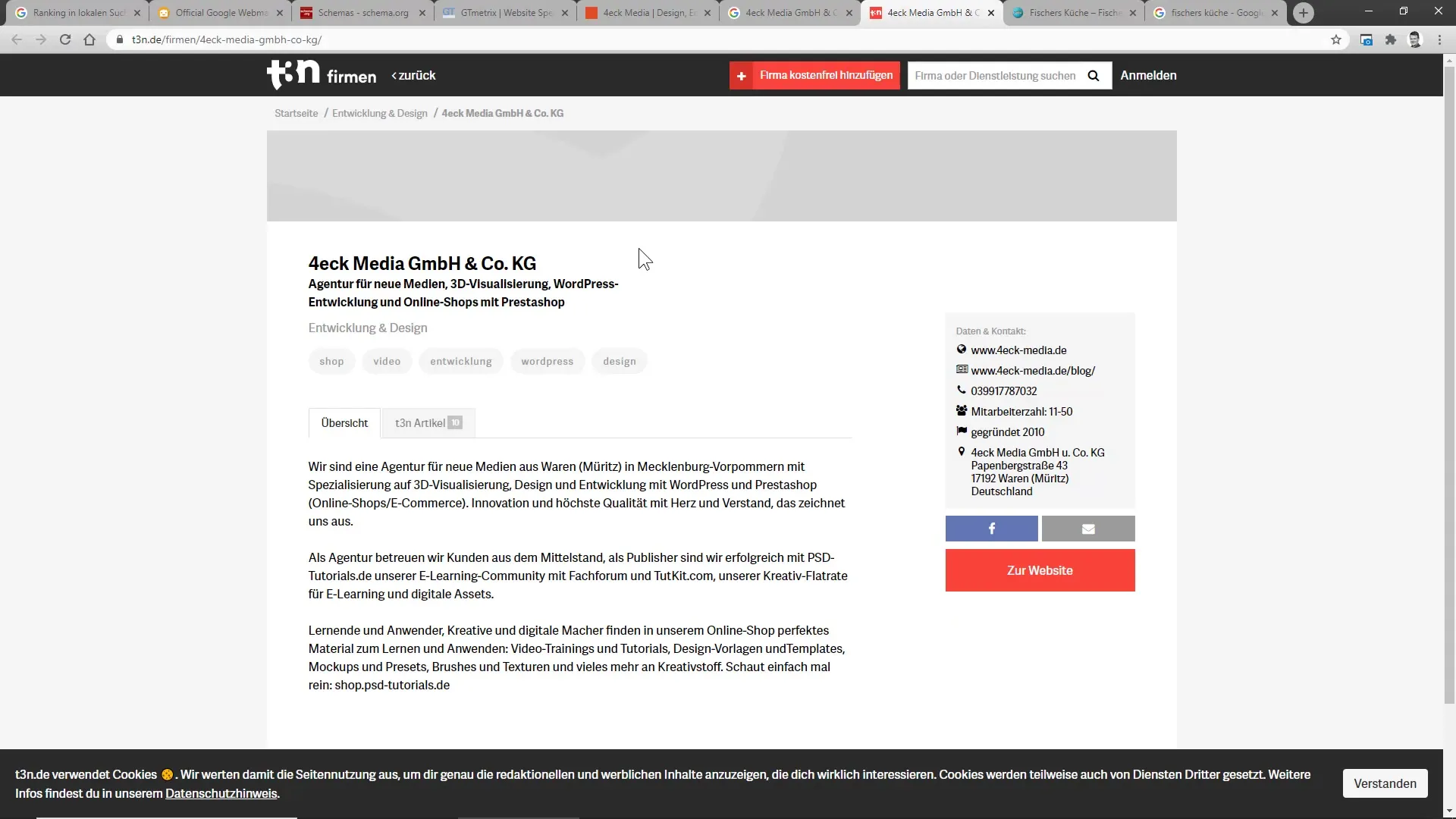
Step 3: Use structured data
To help Google and other search engines understand the essential information about your website, you should use structured data. This is usually done by inserting tags that give your business information a specific format. Using schema.org is a best practice to clearly communicate your core information such as opening hours and payment types. Contact your developer to ensure these tags are implemented in the source code of your pages.
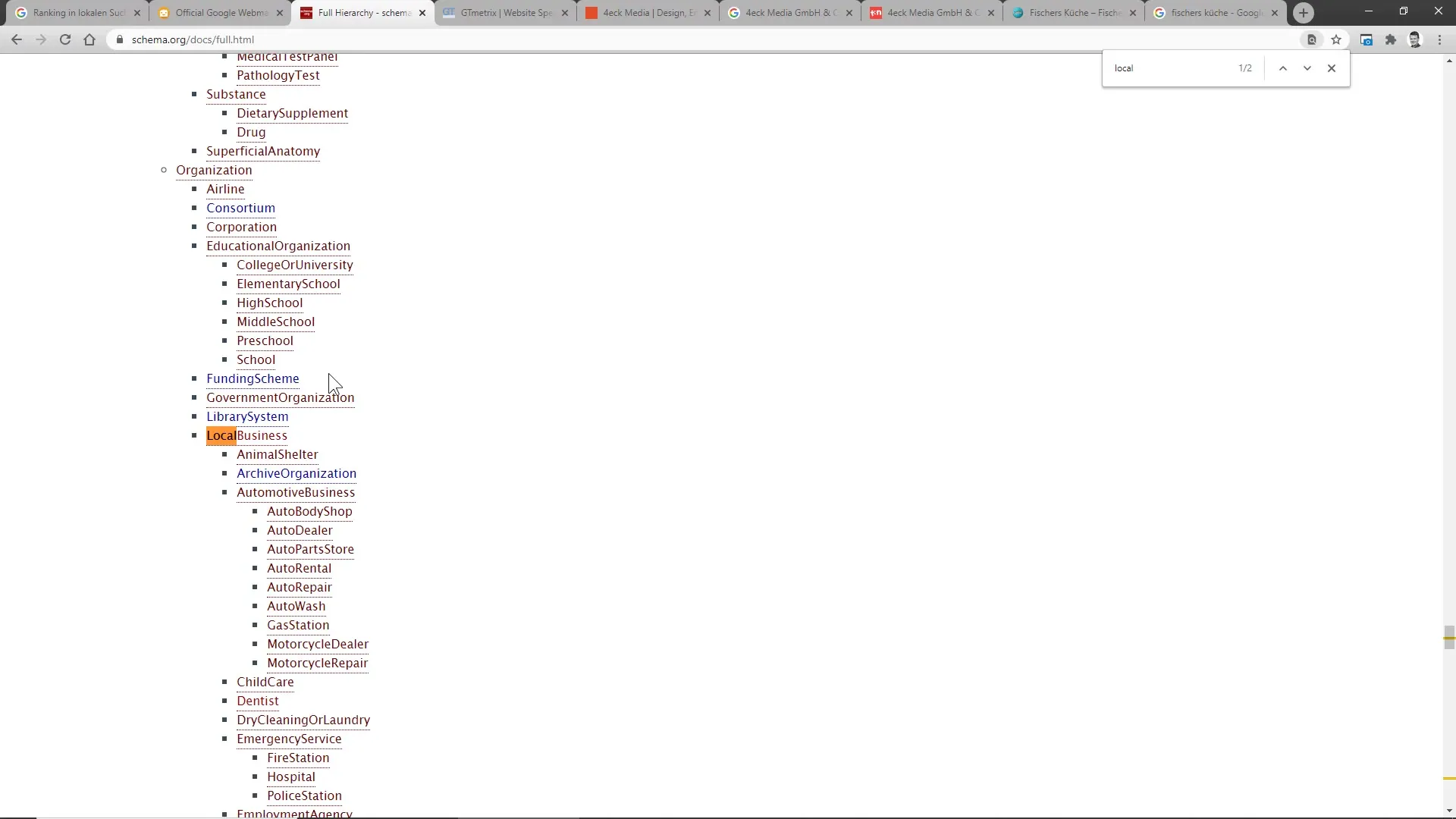
Step 4: Embed Google Maps
A great way to improve your local visibility is to embed Google Maps on your website. While Google has not officially confirmed that embedding Maps improves local ranking, there are indications that it increases your online visibility. Be sure to do this in compliance with GDPR, meaning you must use the Google Maps Cloud Platform for proper integration.
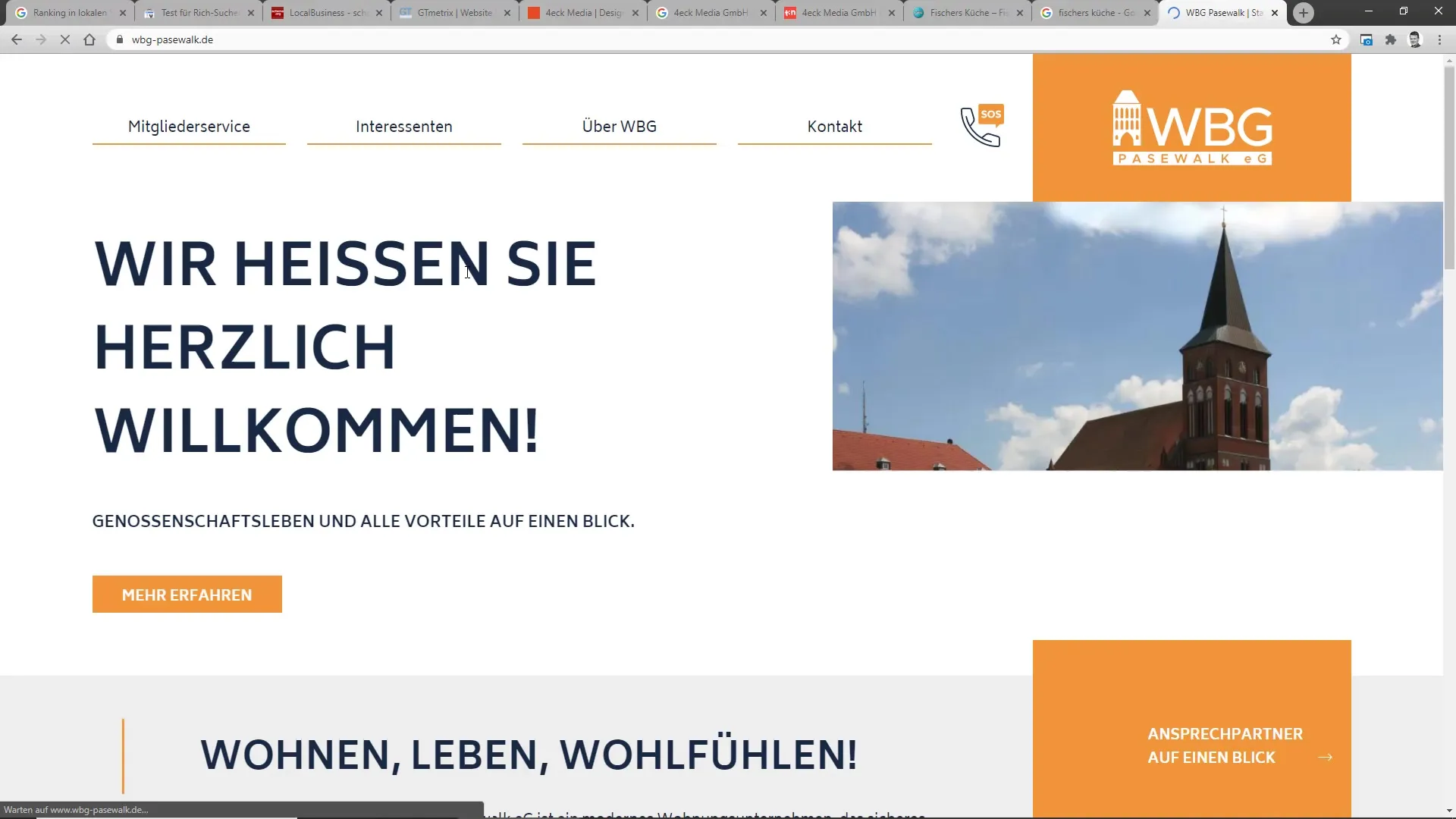
Step 5: Use location-based keywords
Use location-based keywords on your page to ensure that your offerings are well positioned in your region. Integrate these keywords into text, metadata, headings, and the footer of your website. Ensure that these terms are present in both the content and graphic elements to increase the relevance of your page.
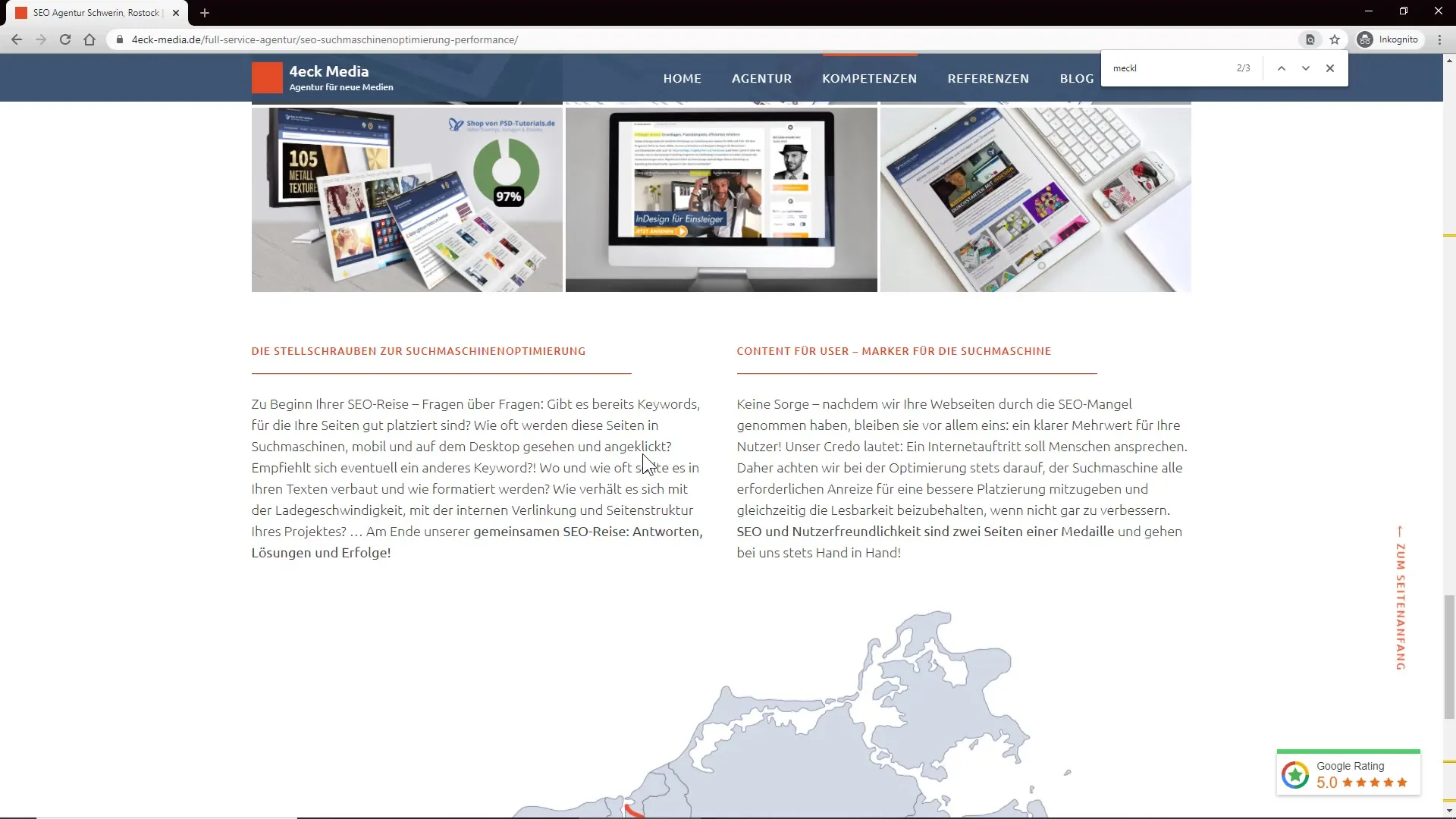
Step 6: Optimize user experience and page speed
A high user experience and the speed of your website are crucial for ranking. Test your website using Google tools to check its mobile-friendliness and loading speed. Use the insights from these tests to make optimizations if necessary. A smooth access to your website not only improves your placement in search results but also increases the satisfaction of your visitors.
Step 7: Regularly review your website
Keep your website regularly updated and check the latest best practices from Google. This ensures that you meet the necessary requirements and remain competitive. Regularly visit Google My Business Help to stay informed about new features and changes.
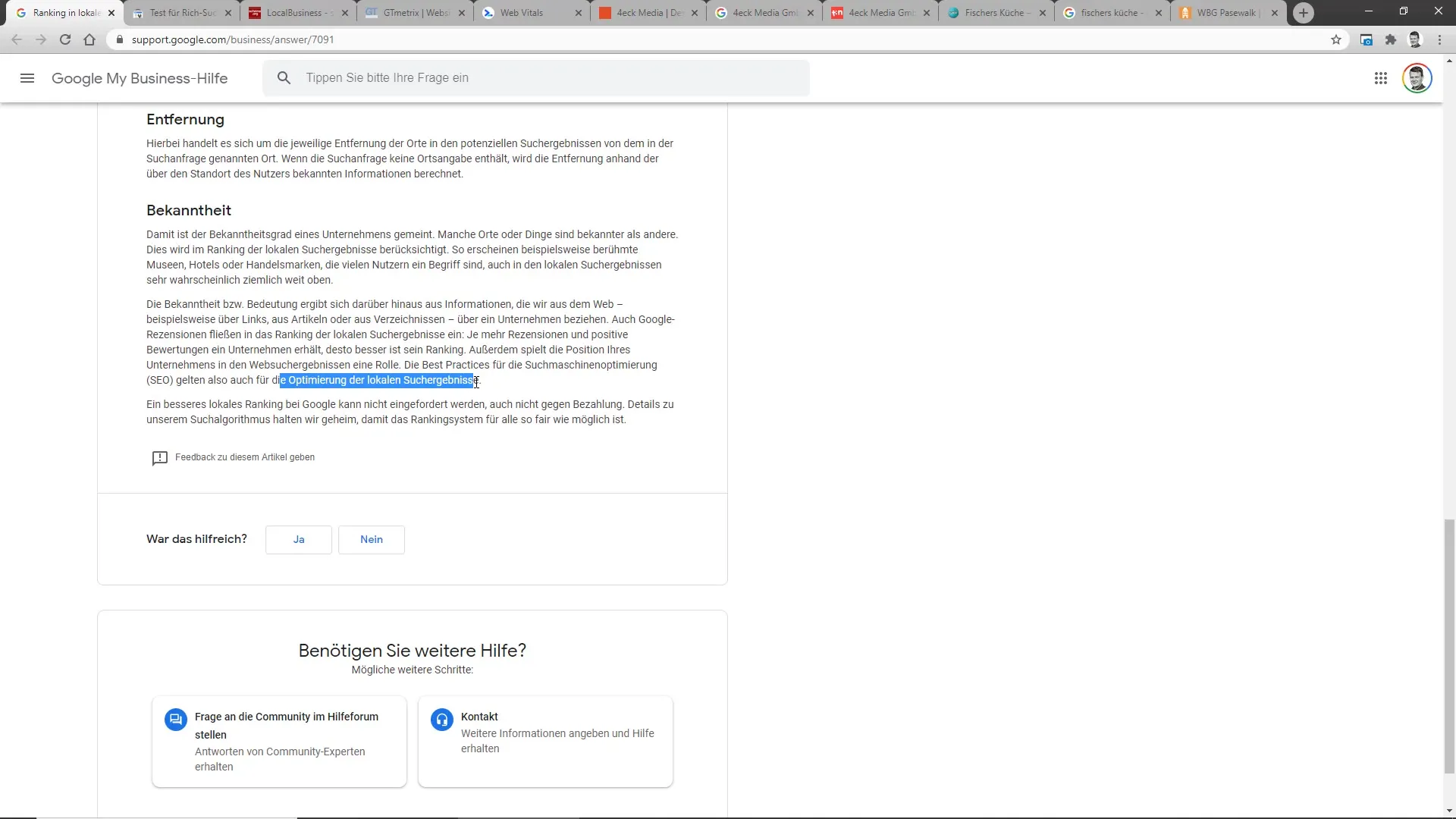
Summary - OnPage Optimization for Local SEO: How to Improve Your Ranking
The OnPage optimization of your website is a central component of the local SEO strategy. Ensure that your business data is consistent and up-to-date. Use structured data, integrate Google Maps, and work with location-based keywords. Additionally, ensure that your website provides a high user experience and is regularly reviewed. These are the fundamental steps to achieve a better position in local search results.
Frequently Asked Questions
Why is the consistency of my business data important?Consistent data allows Google to better assess your business and display it in search results.
How do I improve the user experience of my website?Optimize the loading speed and mobile usability of your website.
What are structured data?These are special tags used to convey important information about your page to Google.
How often should I check my website?It is advisable to regularly review your website to ensure that all information is current and complies with best practices.
How can I find location-based keywords?Analyze your industry and create a list of keywords that are associated with your location and services.


